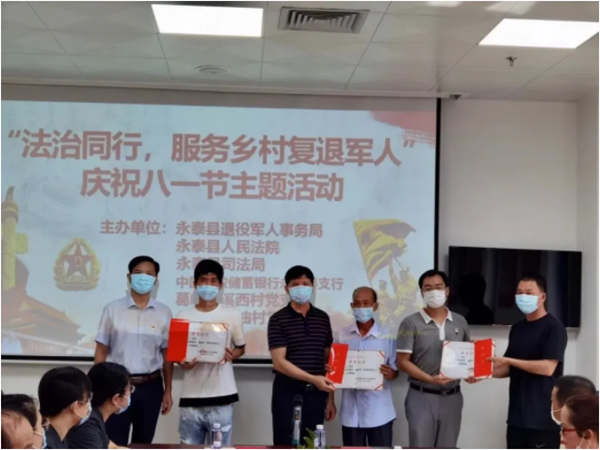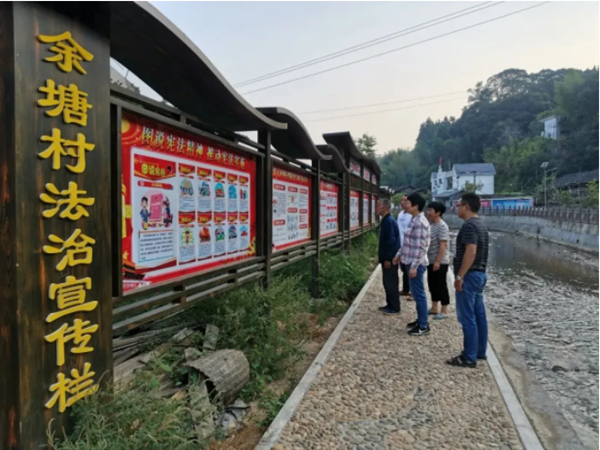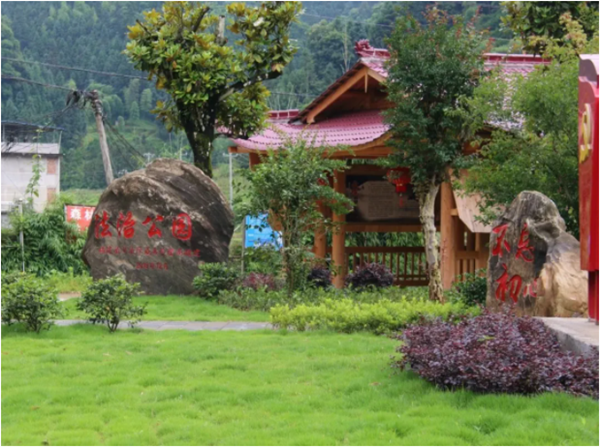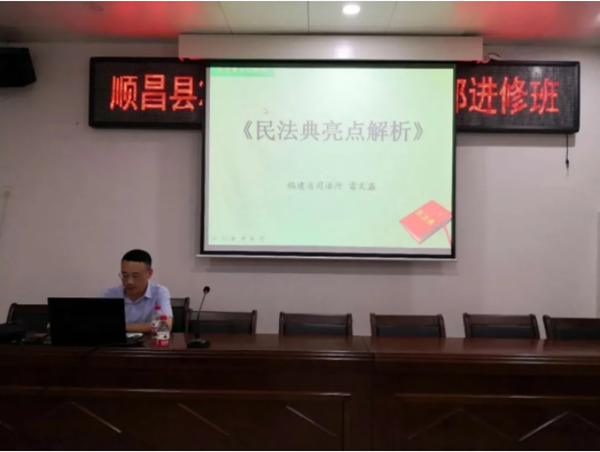Fujian judicial administrators lead villagers to prosperity
Since being appointed the heads of five impoverished villages in East China's Fujian province about three years ago, five officials of the province's judicial department have been devoting themselves to local poverty alleviation work.
Their earnest efforts have lifted all the villages' 43 registered poor households (148 people) out of poverty and paved the way to prosperity.
Sticking to mass line
After learning that there were 21 veterans in Danyou village, Tao Ran, one of the officials, decided to let them play a role in the local poverty alleviation effort.
With his encouragement the veterans became the leading force behind the effort with one of them becoming a public servant and two others serving on the villagers' committee.

In the village of Yutang, the local bridge, under which a brook runs through the village, is the place where villagers sell vegetables and fruits in the daytime.
Under the leadership of Peng Fengyu, another of the said officials, it has become a venue where the villagers' committee negotiates local affairs with residents and villagers settle their disputes in the evening.

Striving to raise people's income
As soon as they arrived at their respective villages, the officials started to draw up economic development plans based on local conditions, aiming to help villagers shake off poverty in the following three years.
To fully exploit the tourism potential of Liandun village, Long Chengzhong, the village's head, made great efforts to turn the village into a forest village where tourists can pay to pick oranges. He also encouraged villagers to draw on livestream platforms to sell their produce.
These moves not only greatly boosted the villagers' incomes but also made the village a provincial-level role model in rural revitalization and governance.

Likewise, Lian Yanqun, head of Yegandi village, also boosted villagers' livelihood by helping develop the local tea-picking business and courtyard economy.
By taking a variety of measures such as buying storefronts, building barns, investing in planting of new crops and establishing an agricultural cooperative, Peng of Yutang village managed to achieve an increase of 80,000 yuan ($12,000) in the village's annual revenue.
To make sure that no one was left behind, Peng and the villagers' committee also created 13 special jobs for villagers with disabilities.
Improving living environment
Apart from personal income, Lian of Yegandi village was also committed to improving the local living environment, taking steps to address the most prominent issues.
Specifically, Lian devoted resources to dismantling illegal buildings, constructing a 2.5 kilometer-long sewage system and a 5 kilometer-long running water pipe, renovating toilets of all the 138 local households, and building a standard rural clinic which now keeps health records of over 500 villagers.
Apart from being the head of Jizhou village, Lei Wenxin also served as the legal counsel of the government of Shunchang county.
Over the past three years, he advised the government on its major decisions and administrative activities, helped it formulate dozens of regulatory documents, and gave more than 30 lectures on such topics as China's Constitution and Civil Code.

Strengthening financial discipline
The village heads also took measures to prevent corruption in the use of poverty relief funds.
According to Lian of Yegandi village, over four million yuan were invested in 16 infrastructure projects in the village over the past three years. Members of the village's Party branch and villagers' committee successfully kept their integrity by staying clear of the money and focusing only on the quality of the projects. "We're fully at ease," said Lian.
Tao of Danyou village, on the other hand, adopted a different approach. He led the villagers to elect a special committee overseeing major local affairs. The village also hired legal and financial advisers to conduct pre-event review of the legality of every project involving an investment of 100,000 yuan or more.
Working whole-heartedly while leaving with clean hands is a principle to which Chinese judicial administrators have always adhered.

Ministry of Justice of the
People's Republic of China
All rights reserved. Presented by China Daily.
京ICP备13016994号-2


